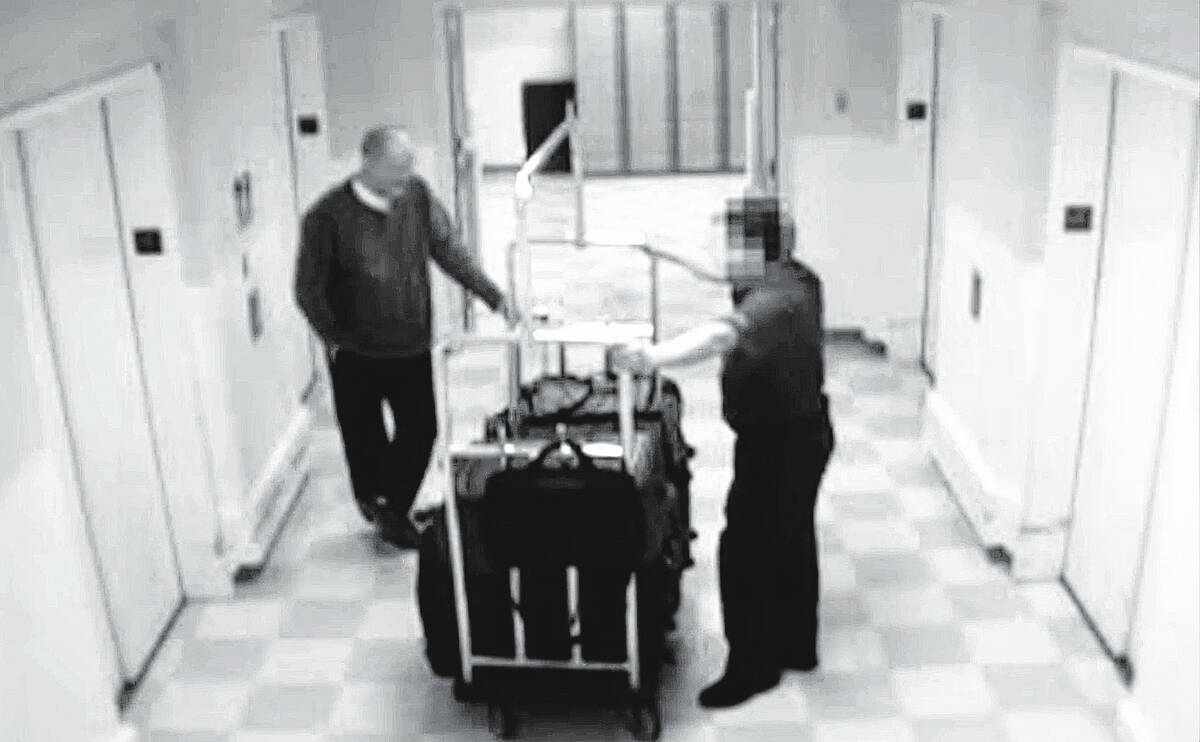What are they hiding? FBI redactions mask 1 October information
The FBI recently released more records related to the nation’s deadliest mass shooting.
But the documents were so heavily redacted they don’t improve the public’s understanding of what might have motivated Stephen Paddock to kill 60 people, injure hundreds more in Las Vegas and take his own life on Oct. 1, 2017, government transparency experts said.
The federal Freedom of Information Act was intended to keep “citizens in the know about their government” and release all information unless it falls under nine narrow exemptions, according to the government’s FOIA.gov website.
Yet FBI officials broadly redacted hundreds of pages of the new records despite the only suspect being dead and the FBI and Las Vegas police officials saying there is no ongoing investigation, the records show.
Among the heavily redacted records were summaries of handwritten letters sent to Paddock and found in Texas. But Las Vegas police on Thursday released the letters to the Review-Journal without redactions. The letters suggest that Paddock had discussed his plans with an ex-convict who wrote the notes, imploring him not to “shoot or kill innocent people.”
Review-Journal Executive Editor Glenn Cook wants to know: What is the FBI hiding?
“The aftermath of the Oct. 1 mass shooting was fertile ground for conspiracy theorists and anyone who desired a different truth,” Cook said. “The delayed release of records, coupled with the heavy redactions, provided all-new material for these people. In the age of social media, limiting public information fans the flames of fantasy and contributes greatly to misunderstanding and outright misinformation that hurts everyone.”
FBI Las Vegas spokeswoman Sandra Breault wrote, in an email exchange, that responses to records requests are posted to the agency’s FOIA website after three people request the same information. But she and national FBI spokeswoman Tina Jagerson declined to discuss the redactions or explain the justification for providing so little information on a closed case.
Jagerson directed inquiries about the redactions to the FOIA officer, who told the Review-Journal that his office doesn’t have to answer questions and that the newspaper should direct inquiries to Jagerson.
Redacted records released
In September, FBI officials released 314 pages of records detailing interviews and evidence they gathered during their investigation. They released about 300 additional pages in February.
Throughout the 600-page document, important information on who conducted the interviews, where they were conducted and who was interviewed was almost always redacted.
Redactions generally look like someone took a black highlighter to portions of text, deliberately making it impossible to read. Sometimes, an entire page is redacted, with 30 or so horizontal, narrow black bars covering every word on a document.
“(Redacted) believes maybe Paddock lost it because (redacted),” one interviewee told the FBI.
The FBI justified a large portion of the redactions under the exemption that releasing the information would be an invasion of privacy. But many redactions do not appear to contain personal information.
All of the information the FBI found on the shooter’s laptop was redacted, though the Metropolitan Police Department published the search history years ago.
The laptop information, according to the FBI, would disclose techniques and procedures the FBI uses to investigate.
Investigators found someone may have tried to enter Paddock’s room, according to the new FBI documents, but it’s unclear who, why or when. Mentions of Paddock’s live-in girlfriend, Marilou Danley, whose name was widely reported after the shooting, were redacted.
“Why in the world wasn’t this information disclosed as part of the Metro and FBI reports that were produced years ago?” Cook asked. “It’s been 5½ years since the shooting. What else are they holding back?”
Nevada Press Association Executive Director Brian Allfrey said the public deserves more information than the FBI released.
“The number of redactions makes it extremely hard to glean any new understanding of what led to this tragic event,” he said. “Redacting entire interviews, names of witnesses and names of investigators undermines the intent of transparency and open government.”
The agency won’t say whether there are additional documents that it plans to release or whether it will restore some of the information officials redacted in the released documents.
The “What Are They Hiding?” column was created to educate Nevadans about transparency laws, inform readers about Review-Journal coverage being stymied by bureaucracies, and shame public officials into being open with the hardworking people who pay all of government’s bills. Were you wrongly denied access to public records? Share your story with us at whataretheyhiding@reviewjournal.com.
Contact Sabrina Schnur at sschnur@reviewjournal.com or 702-383-0278. Follow @sabrina_schnur on Twitter.





























